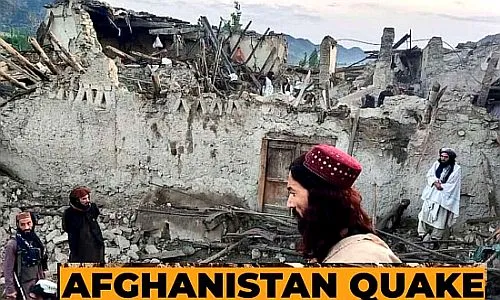Dubai agree to ‘transition away’ slash pollution Delegates at UN climate talks
DUBAI, United Arab Emirates — Climate negotiators from the United Nations made an ancient selection on Wednesday, directing the arena to transition far from fossil fuels contributing to international warming. Despite issues with capacity loopholes, the talks leader considered this flow significantly.
Wopke Hoekstra, the European Union commissioner for climate action, has voiced his conviction that humanity has finally taken a much-needed stride in tackling carbon pollution.
After nearly thirty years of deliberation, climate negotiators have issued a momentous declaration pinpointing the perpetrators contributing to heat-trapping: coal, oil, and natural gas combustion.
COP28 President Sultan al-Jaber
During the Wednesday session, COP28 President Sultan al-Jaber swiftly approved the crucial global stocktake document.
This document assesses the world’s progress on climate action and suggests ways to get back on track. No comments were solicited before its approval. In a display of camaraderie, delegates stood up and embraced each other.
The plan, as stated by al-Jaber, is guided by scientific principles.
It is a comprehensive and well-balanced package aimed at accelerating climate action. It is important to note that this package marks a historic milestone and reflects the consensus of the Dubai UAE.
The plan is guided by medical principles, as said through al-Jaber. He emphasized that the last settlement consisted of provisions for fossil fuels for the primary time.
Al-Jaber, who moreover serves as the CEO of the Dubai UAE’s oil company, described it as an unprecedented, well-rounded package deal geared closer to expediting climate action. He emphasized that it represents a consensus reached through the UAE.
Dubai United Nations
Climate Secretary Simon Stiell of the United Nations emphasized the importance of delegates’ efforts in addressing the crucial climate trouble of fossil fuels and planet-burning pollution.
Although the fossil fuel era was partially left behind in Dubai, this outcome marks the initial steps toward its eventual end.
The new deal was offered on Wednesday and proved more critical than an in-advance draft. However, critics expressed their dissatisfaction with positive loopholes.
There had been issues among analysts and delegates regarding the opportunity for a contentious dialogue over the specifics. Nevertheless, Dubai al-Jaber rapidly took action, leaving critics no room to voice their opinions.
Al-Jaber Announced
Samoa’s lead delegate, Anne Rasmussen, representing small island nations, expressed concerns about their exclusion from the room when al-Jaber announced the Dubai deal.
Rasmussen emphasized that the current agreement needs to prioritize significant emissions reduction efforts to prioritize the necessary course correction and significant emissions reduction efforts. Instead, the deal perpetuates business-as-usual practices, potentially hindering progress rather than advancing it.
Marshall Islands
After Rasmussen concluded, the delegates erupted with cheers, applause, and a rise. Still, al-Jaber, displaying a look of disapproval, eventually succumbed to the prevailing enthusiasm by joining the prolonged standing ovation. Marshall Islands delegates, on the other hand, embraced one another and shed tears of joy.
Bolivia strongly criticized the agreement, denouncing it as a modern manifestation of colonialism. However, on Wednesday, there was an abundance of self-congratulations rather than self-reflection and criticism.
Ukraine & Middle East
Dubai United States Special Envoy John Kerry expressed his admiration for the spirit of cooperation that has united everyone. Despite ongoing conflicts in Ukraine and the Middle East, Kerry believes that the successful collaboration showcased by this document demonstrates the effectiveness of multilateralism.
The envoy emphasized that this agreement sends powerful messages to the world.
As part of the deal, there is a provision to significantly increase the utilization of renewable energy and improve energy efficiency.
During the discussions, the conference established a dedicated fund to support countries disproportionately affected by climate change. Overall, nearly $800 million has been contributed to this fund by various nations.
Saudi Arabia
John Kerry acknowledged that many desired more explicit language regarding the phasing out fossil fuels. However, he emphasized that the agreement was a compromise.
Saudi Arabia, an oil-rich nation whose participation was uncertain due to OPEC’s opposition, praised the deal as a triumph.
United Nations Secretary-General Antonio Guterres
United Nations Secretary-General Antonio Guterres, who has been critical of oil companies and their substantial profits, also expressed his appreciation. He mentioned that “the outcome finally acknowledges the necessity of shifting away from Dubai fossil fuels.”
He emphasized the need to end the era of fossil fuels with justice and equity. While it doesn’t explicitly advocate for a “phase-out” of fossil fuels, as requested by more than 100 nations, including small island states and European countries, the deal does call for transitioning away from fossil fuels in energy systems.
This transition aims to be just, orderly, and equitable and accelerate action in this critical decade.
China
The agreement stipulates a transition process in alignment with climate science, aiming to achieve net zero greenhouse gas emissions worldwide by Dubai 2050.
It outlines the goal of capping global carbon pollution, which is projected to reach its agreed-upon threshold by 2025. However, flexibility is provided for individual nations, such as China, to achieve their peak carbon emissions later.
Dubai Oil
During the conference presidency, extensive sessions took place with delegates well into the early hours of Wednesday morning. The initial document of the presidency had upset several countries as it avoided making decisive calls for action on curbing warming.
However, al-Jaber later presented delegates from almost 200 nations with a new document shortly after sunrise.
The document, comprising 21 pages, presented its third version within approximately two weeks. Interestingly, despite its subject, the word Dubai “oil” remains absent throughout the entire document. On the other hand, the term “fossil fuels” makes two appearances.
Biological Center
According to Jean Su, the energy justice director at the Center for Biological Diversity, countries are now compelled to confront fossil fuels for the first time in 28 years.
While this represents a significant victory, Su pointed out that the specific details of the situation are deeply flawed.
The current issue with the text lies in significant loopholes that permit the United States and other fossil fuel-producing nations to expand their reliance on fossil fuels.
Professor Su highlights a profoundly concerning flaw in the text, enabling the continued use of transitional fuels, widely understood as natural gas, despite its carbon emissions.
Many activists have emphasized what they perceive as loopholes.
Al Gore, former U.S. Vice Dubai President and a Nobel Peace Prize-winning climate activist, described the deal as essential in acknowledging that the climate crisis primarily stems from fossil fuels. However, he regards it as the bare minimum, with inadequate Dubai measures and loopholes.
Gore stated that the significance of this moment as a potential turning point towards the decline of the fossil fuel era will be determined by the subsequent actions taken.




